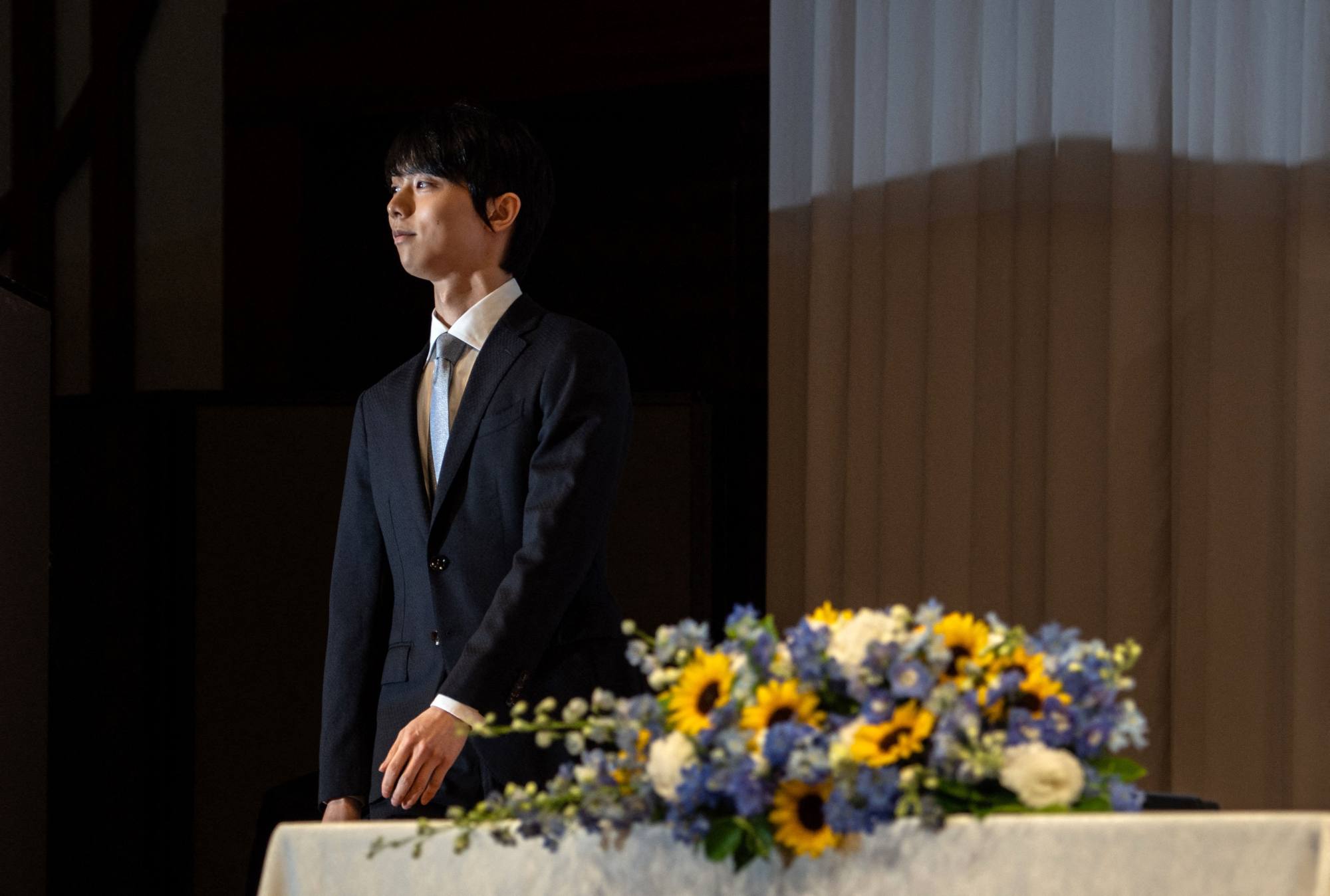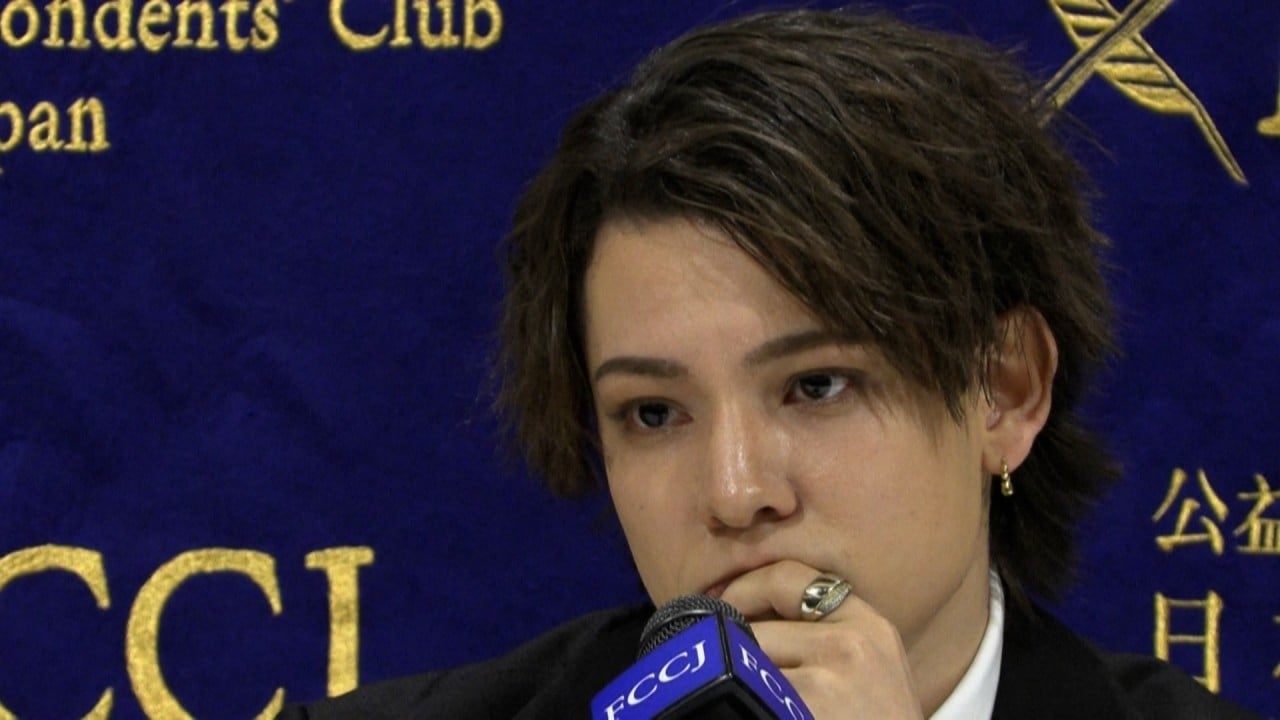Japan’s scandal-tainted entertainment industry still has its ‘dark sides’, veteran actor-director Takeshi Kitano says
[ad_1]
At least 300 young men have since joined forces and are understood to be preparing compensation claims against the company, although some are finding the situation too traumatic. One of the men was discovered dead in mid-October. He has not been named.
The entertainment world was rocked again in late September when an up-and-coming member of the all-female musical theatre troupe Takarazuka Revue was found dead at the foot of her apartment complex.
‘They do not understand’: anger mounts against Japan sex predator’s talent firm
‘They do not understand’: anger mounts against Japan sex predator’s talent firm
Lawyers representing the family of the deceased woman, who has not been named but was 25 years old, have claimed she took her own life because of the gruelling working conditions within the troupe and bullying by senior members.
Her family expressed their anger after Kenshi Koba, the organisation’s chairman, denied the woman had been the victim of bullying and said her death was due to psychological stress brought on by long working hours.
Koba has since resigned, with a new panel being set up to look into the case.
In the old days, in the Japanese entertainment industry, I would not go as far as to call it slavery, but people used to be treated as commodities
Industry veteran Kitano said he had witnessed the dark side of Japan’s pop, stage and screen world with his own eyes.
“In the old days, in the Japanese entertainment industry, I would not go as far as to call it slavery, but people used to be treated as commodities from which money was made while showing them off,” he said.
“This is something that is still left in the culture of Japanese entertainment,” he added. “There have been improvements in recent years, but I have always thought that severe circumstances existed.”
There were times “when it was not possible to laugh”, he said, adding that work to “remove these dark sides” is still needed.
‘It was a nightmare’: can Japan overhaul its gruelling office culture as more die from overwork?
‘It was a nightmare’: can Japan overhaul its gruelling office culture as more die from overwork?
Others in the industry agree, but appear pessimistic that meaningful change is possible.
The Society to Eliminate Sexual Assault and Violence in the Video Industry, which was set up in April last year, released a strongly worded statement soon after its formation demanding an end to all forms of abuse in the sector.
In the open letter, members – including director Mipo O and actors Midori Suiren and Yumi Ishikawa – said sexual violence in the industry is the result of the powerful “making use of status and power relations”, with directors and producers “coercing an actor into having sexual intercourse on condition of casting”.
Those who are the target of such approaches fear the consequences if they refuse, including losing their jobs, or being ostracised and blacklisted from future projects.
In a follow-up statement passed on to This Week in Asia, a number of “victims of sexual assault and sexual violence” in the sector were quoted by the organisation as saying the campaign had highlighted cases of abuse and helped society “become less indifferent”, but victims were still feeling “exhausted and hopeless” as they were not getting the help they needed.
“We feel we are reaching our limits because we are faced with a problem that cannot be solved by existing laws, we are being looked down on in media reports, and we are worried that if we take action on our own, we will be slapped with lawsuits,” the statement said.
It also noted that alleged perpetrators had been returning to work “without making proper apologies or responding appropriately to the victims about the damage they had done”.
The pressure does not come solely from power brokers within Japan’s entertainment industry, as viewers have also had an increasingly intrusive impact on the private lives of actors, performers and sports stars in the social-media era.

That was reportedly not enough for the producers of the show, who encouraged a confrontation with another resident of the house to boost ratings. After she slapped the man during an argument over one of her prized wrestling costumes, the online knives came out.
Some demanded that she be kicked off the show immediately; more than one poster said Kimura should kill herself.
Since her death, Kimura’s mother has been campaigning for anyone who issues online threats or calls for someone to take their own life to face prosecution. Yet little appears to have changed for the better.
Hanyu, 28, said he was forced to split from his new wife – who is not a celebrity – because he wanted her to lead a happy life away from the unrelenting spotlight that is constantly focused on him as a household name.
“Because of my limited experience in life, it was extremely difficult to keep my partner and myself safe under these circumstances and I found it unbearable,” he said in the statement.

Makoto Watanabe, a media and communications professor at Hokkaido Bunkyo University in Eniwa, said Japan’s entertainment elites had effectively acted with impunity for decades, but he believes the shocking events of this year may finally change that.
“They have been a social class all of their own and acted according to their own rules,” he said. “Being in the entertainment business has always been notoriously tough, but now the rest of the country is seeing not only how tough it is, but also how abusive.
“I think 2023 could actually be the breakthrough year for Japanese society, as we can finally see behind the curtain,” he added.
Johnny Kitagawa sex abuse claims prompt questions over Japan media’s complicity
Johnny Kitagawa sex abuse claims prompt questions over Japan media’s complicity
Japanese domestic media has – albeit belatedly – started to cover problems within the sector, Watanabe said, with owners, agents and abusers no longer able to “escape their responsibilities” so easily thanks to the added scrutiny.
“The pressure needs to be sustained so companies that have failed to change in the past are now forced to do so,” he said. “And I think the fans will be the most powerful force for change. If they are aware of what has been happening and turn their back on [Johnny & Associates] or the Takarazuka Revue, then these organisations are vulnerable. The fans really do hold the key.”
[ad_2]
Source link


